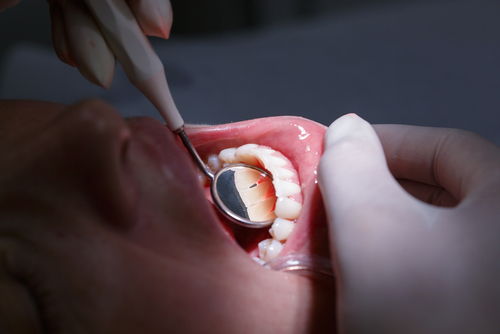Gum disease is treated to keep it from progressing below tooth surfaces and into bone. Gum treatment removes unhealthy tissue in the mouth and may also include scaling. Gum treatment may be needed if you have an infection, if your gums are inflamed or receding, or if you have a large amount of tartar which has become calcified under your gum line. Gum treatment is often done by a dental hygienist but can also be performed by a dentist. There are many different types of gum treatments, which are done based on the patient’s needs and condition.
Who needs Gum Treatment?
Gum treatment is needed by anyone experiencing gum disease or gum irritation to eliminate the problem. It can be excruciating and cause a lot of discomfort. Having clear gums where you can brush your teeth properly will provide fresh breath and increased oral hygiene.
Gum treatment is also indicated if there are ulcers in the mouth or if you are having difficulty with your dentures. Not only will gum treatment eliminate these problems, but it will also help prevent the condition from worsening. Many people choose to have gum treatment because they want whiter, more attractive-looking gums.
The type of gum treatment you will have depends on the condition of your gums and what other procedures are necessary to treat them. The procedure may take place in a dental office or a clinic. In some cases, your dentist may send you to a periodontist, which is a gum specialist.
Benefits of Gum treatment
Some of the benefits of having gum treatment are:
1. Prevents Tooth loss
The disease periodontal disease can lead to tooth loss. Gum treatment stops the disease from progressing and, in some cases, eliminates it. If you are experiencing bad breath, bleeding gums or loose teeth, you may have gum disease and should seek treatment immediately. Dentists who specialize in gum disease will have to discuss your treatment options with you.
2. Reduces bad breath
Bacteria that live in your mouth will cause you to have bad breath if left untreated. People who suffer from gum disease tend to have more bacteria in their mouths and thus will experience more bad breath. Even if you brush and floss your teeth daily, the bacteria can still live between your gums and teeth, causing them to smell bad when digestive juices break down the food. Treating your gums will eliminate bad breath, and you can take care of your teeth simultaneously.
3. Prevents Bleeding gums
Bleeding gums may occur due to the bacteria in your mouth or when you are brushing after eating. The bacteria is causing the bleeding because it is not able to be digested as efficiently by your body. Gum treatment will help prevent bleeding gums, which can become infected and require root canal treatment. The gum treatment will restore your gums so that they can heal properly.
4. Improves Oral Hygiene
Gum disease can make it difficult to brush and floss your teeth properly. Patients with gum disease often cannot wear their dentures, causing them to be more susceptible to tooth decay, tooth loss and other diseases. The gum treatment will eliminate the disease and improve your oral hygiene. Your dentist or periodontist can advise you on brushing and flossing techniques that are best for you.
5. Increases Appearance
Many people opt for gum treatment because they want a more attractive smile. The colour of the gums can sometimes cause a gap between the teeth, which can be visible when you smile, talk or laugh. Some people have gums that are receding and thus causing their teeth to become crooked. Gum treatment will eliminate these problems and give you better-looking gums and healthier teeth.
Conclusion
Gum treatment is a procedure that is required to treat painful, bleeding gums or other oral issues. It will improve your oral hygiene, eliminate bad breath, and increase your smile’s appearance. If you are experiencing any of these symptoms, then gum treatment may be what you need, and you should consult a dentist to discuss the best options.
The dentist can advise you on what procedure is best for your needs and whether you should seek an alternative treatment.